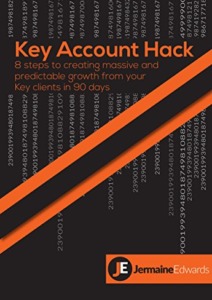We can’t ignore the fact that we’re all motivated by something. The neuroscience and decision making of customers we know popularised by books like ‘Chimp Paradox’, ‘the brain audit’ and Cialdini book ‘Influence’. Buying motivation is both a wide and deep subject with many views and it fascinates me. I don’t confess to be an expert but like you I’m an observer. Being an observer has helped me to pay attention to trends, patterns and questions my clients ask that can and will inform how I serve them.
How often do you think about what motivates your customers to buy, act or ask questions?
The extent to which you know this will determine how fast or slow your sales cycle will be, the resistance you get to change and the level of influence you can command at different levels of your clients business.
We mustn’t be fooled by past success. When you first acquired your client there was a specific pain they wanted to get away from and picture of a better future and solution you presented them with. You did a great job helping them understand that and delivered a great service and result. Year two comes around and that same argument you used doesn’t work as well. You may sell them the same amount or marginally more. Year three, it doesn’t work at all in fact they buy less. What has changed?
Here’s the key – Without a sense of urgency desire loses its value – Jim Rohn
Before you can create urgency you need to know what you want your customers to be urgent about and what urgency would look like for them. This urgency has to be based in something logical and emotional.
Example of this urgency could be a piece of legislation coming in which would mean the price of your product will go up for your customer and will mean higher implementation costs for their business. Acting now would make sense emotionally and logically. But, urgency is just one element of motivation.
Neuroscientist Antonio Damasio studied people who had received brain injuries that had had one specific effect: to damage that part of the brain where emotions are generated. In all other respects they seemed normal – they just lost the ability to feel emotions.
The interesting thing he found was that their ability to make decisions was seriously impaired. They could logically describe what they should be doing, in practice they found it very difficult to make decisions about where to live, what to eat, etc.
By this reason we now know we can’t just offer reasons based on Logic but it must have a strong emotional component. There are many unseen motivation factors for our customers that we often don’t recognize. Some of those motivating emotional factors could be:
- Pressure to act from their business
- Maintaining budgets for the following year
- Status and prestige
- Fear of loss and much more
This tells us that not every client situation will have the same reasons or motivations to move. It’s not as straightforward as pain and gain.
What do you think motivates your customers? How do you know? How do you find out? – You can’t give your customers a motivation quiz although that would be helpful. You may not always get the opportunity to have a long conversation to explore.
I’d like to share a series of questions that will be counter intuitive to almost every key account training you will have been given. These will be questions to ask your customer and yourself. These questions will give you answers that matter. When you understand the environment in which your customer and your contacts make decisions you can cut through almost 80% of the motivational guess work. You’ll discover their motivation and the big WHY that lies beneath. Here are few examples of these questions below.
- How does your customer deal with identified challenges in their business? – meaning what process do they use internally to figure out the best course of action?
- How important are you to your customer’s success? What do they value most?
- What changes in their industry or business impact the way they use your product or service?
- How much does the internal culture of the business inform or impact their decision making?
- On a scale of 1-10 (10 being very risk adverse) – How risk adverse do you believe your current customer and contacts are to change? How do you know? (What experiences could support this? What did you do? What was the outcome?)
- What is the one result they want most in their role and department? Why?
- Who are the most challenging people they have to deal with in their business? What is the impact and connection of those relationships?
I have a series of questions you can download
You may look at these questions and think, “I can’t possibly ask these questions” or “I don’t have the time”. The answer to that is you don’t have to ask your customer all of these questions. You can pick. Neither would I recommend you ask them in one call.
Regardless of where you begin these questions are designed to get you deeper into the mind of your customer, their working environment and motivation. All of the questions will send you deeper into the mind of your customers. If you take 10 minutes to do the exercise of considering these questions you’ll become a master motivator of your customers.











